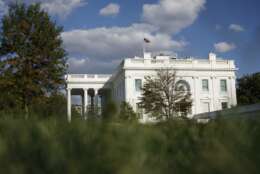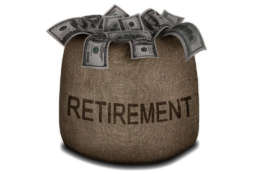Retirement
-
Even in the federal government where workers are supposed to be treated the same and be paid based on their grade level, there are differences. Take the two main retirement systems.
February 24, 2020 -
One of the great fears of people planning for retirement is running out of, or low on money while they are still breathing.
February 21, 2020 -
While there are some really dangerous federal jobs, including law enforcement officers, firefighters and prison personnel, even the 9-to-5 office positions are pretty scary now.
February 20, 2020 -
It's been a tough few weeks for federal employees, at least for those who worry about their jobs, their pay and their retirements.
February 19, 2020 -
For many people nearing retirement, running out of money is one of the top fears. Unless they work for the federal government.
February 19, 2020 -
The two decades-old laws impact, as in reduce or almost eliminate, the Social Security benefits of 1.8 million public servants.
February 18, 2020 -
In what’s become the administration’s evergreen budget plan, the White House has again proposed that federal workers kick in more of their salary toward their retirement plan in return for smaller lifetime annuities that are frozen when they retire.
February 12, 2020 -
If history repeats itself, the budget President Donald Trump sent to Congress Monday afternoon will again be a political bombshell
February 11, 2020 -
President Donald Trump's proposed 1% across-the-board federal pay raise is an attempt to meet Congress "halfway" on the topic, as the administration also recommended more agency funding on employee performance rewards and bonuses.
February 10, 2020 -
Most people stop looking forward to birthdays after they first become eligible to drive, or vote.
February 10, 2020 -
In today's Federal Newscast, the Republican Study Committee want to overhaul federal employee pay, performance awards and hiring systems.
February 07, 2020 -
While the USPS Fairness Act would remove an “onerous requirement” for USPS to pre-fund its retiree health benefits, the legislation by itself would do nothing to remedy the agency’s cash flow problems or its long-term financial position.
February 07, 2020 -
Somewhere out there, the person or persons who, in the late 1990s, predicted Uncle Sam was facing a massive wave of retirements may be happy at last. Or not!
February 07, 2020 -
Congress had once anticipated as many as 1,000 federal employees would use phased retirement at any given time. But eight years after lawmakers signed off on the program, participation still falls well short of original expectations.
February 06, 2020 -
Although the Federal Employees Retirement System (FERS) was launched in the 1980s, it is still considered the “new” plan by workers who remained in the old Civil Service Retirement System (CSRS).
February 06, 2020













